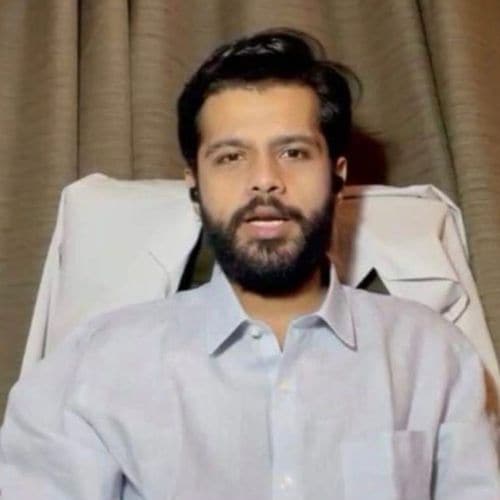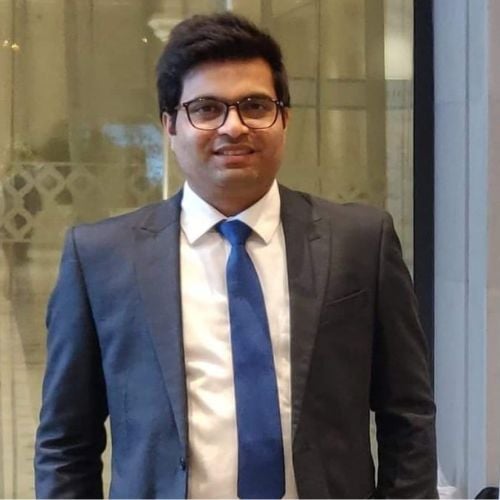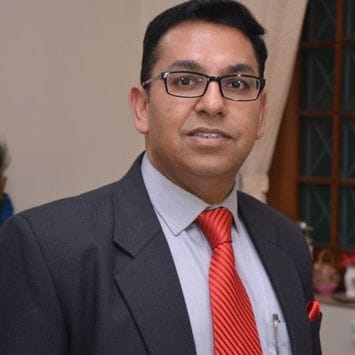MBBS in Hindi? Aspirants, faculty, council members react
The decision to teach MBBS in Hindi has been taken with the objective of promoting Indian languages in the education system. The move has, however, drawn a mixed reaction. While some have applauded the decision, others believe that it will add further pressure on medical students.
Madhya Pradesh Congress president Kamal Nath has recently asked why a similar initiative with an engineering course was shelved in the BJP-ruled state. He accused the Centre of organising such events and announcements to divert people’s attention from the “worsening” health services in the state.
Indianexpress.com talked to some faculty members, experts and incoming students to see their views on introducing the MBBS curriculum in Hindi.
Dr Rohan Krishnan, president of the Federation of All India Medical Association (FAIMA):


This decision is going to affect the students adversely. Medical education needs to be at par with international guidelines and bodies; it has to tie up with criterion of WHO, UNICEF, FDA etc. This will create unnecessary confusion for students and can even negatively impact the quality of doctors in the country. At present, there are less effective drug research and quality control in the country, so this decision will not help.
In any country, that has opted for the regional language protocol of medical education, the quality of doctors has lowered massively — be it Russia (which is considered one of the top destinations for medical education), China, Ukraine or even the Philippines. In every country where regional language MBBS training is done, the quality of doctors has declined. In such countries, doctors also face the brunt after completion of the course as they are not familiar with international guidelines. This leads to poor salaries in that country and doctors also struggle to get entry into other countries’ medical systems. Most importantly, patients also suffer because of this decline in quality caused by regional language teaching.
Haziq Parveez Lone, incoming MBBS student:


MBBS in the Hindi language is not a good decision in the long run because pure Hindi words will be used in books which a lot of students will be unaware about, especially the non-Hindi speaking population. Also, most standard video lectures are always in English.
The government should also understand that MBBS is not the final game. To become a good doctor, a student has to do post graduation and super specialisation. All these professional courses will be in English. This is where Hindi medium students will suffer as most of them will get stuck at MBBS.
Another issue is that for better understanding, students mostly use foreign books in MBBS programmes, which are again in English. Most importantly, Hindi students will not be able to exchange information properly with doctors or professors of other states and countries regarding any research programmes, webinar, or seminar.
Dr Ashish Pakhre, assistant professor at AIIMS Bhopal:


Supporters of English-based education contend that the language is most widely used for research and medicine, and is essential for continued medical education (especially for students looking to work overseas). On the other hand, proponents of mother-tongue-based medical education advocate for it as a way to support communication and a way to close the communication gap.
Medical education is not just MBBS, so the important question here is how are we translating the change into subsequent training parts, like post-graduation? How are we looking at the gap that will come between two different patterns of teaching in terms of clinical work, research activities, and global collaboration?
As a result of globalisation of healthcare, medical education has become a multinational endeavor, necessitating enhanced international cooperation. In the field of medical education, the majority of published research and expertise in the biomedical field is written in English. Also, it is yet to be seen how the technical terms will be translated in Hindi as that can make or break this idea in terms of globalisation of the field.
Saurabh Mittal, CFO of S Chand And Company Limited:


This year, only 21.17 per cent of total students opted to attempt NEET in Hindi and regional languages, which is the reason for lack of preparation books in regional languages for the medical entrance exam. Books in Hindi are still available from some of the top publishers; the number of students in other languages makes it unviable since smaller print runs are unviable.
Further, the publishers who provide books for NEET preparation may not have regional language expertise. The gap can be filled in by the publishers who work in the state board market such as Chhaya (S Chand subsidiary) in West Bengal, which has infrastructure to bring Bengali editions. This would also enable distribution better since the distributors for English and Hindi editions, and those for regional state board books, are slightly different.
The challenge would be to find sufficient faculties to teach in these languages, the professional books in these languages (since most are foreign publications), and for acceptability of these professionals in hospitals and the private sector which has largely been English focused. The implementation would take time but is a welcome change to give long due respect to Hindi and other regional languages.
(With inputs from Sakshi Saroha)



